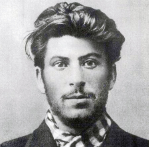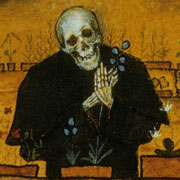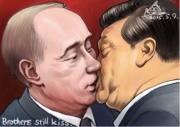|
What is the most powerful flying bug? This poll is closed. |
|||
|---|---|---|---|
| 🦋 |
|
15 | 3.71% |
| 🦇 |
|
115 | 28.47% |
| 🪰 |
|
12 | 2.97% |
| 🐦 |
|
67 | 16.58% |
| dragonfly |
|
94 | 23.27% |
| 🦟 |
|
14 | 3.47% |
| 🐝 |
|
87 | 21.53% |
| Total: | 404 votes | ||
|
Majorian posted:Will it? If all those mines and factories opening up just means jobs that get filled by workers from outside the region or even country, then that seems like a lateral move at best. by what basis do you believe this is likely other than 'russia bad'?
|
|
|
|

|
| # ? May 25, 2024 00:28 |
|
Deadly Ham Sandwich posted:
Didn't Marx write that capital would pursue empty fake shir to generate more capital when given enough rope. So after you explained what computers and cell phones are and what apps are, he'd probably tell you he called it and was right
|
|
|
|
crepeface posted:by what basis do you believe this is likely other than 'russia bad'? It’s a bourgeois republic that predominantly represents the interests of kleptocrats, much like all other bourgeois republics. That’s not at all “Russia bad.” That’s “capitalism bad.”
|
|
|
|
Majorian posted:It’s a bourgeois republic that predominantly represents the interests of kleptocrats, much like all other bourgeois republics. That’s not at all “Russia bad.” That’s “capitalism bad.” it is still possible for things to improve for people in such conditions how has crimea gone post-2014? or russia after putin took over? just asserting the russia is going to plunder the donbass just as bad ukraine would have with no reason other than  is stupid. is stupid.
|
|
|
|
Majorian posted:Keep in mind that's from noted pro-NATO rag Al-Jazeera and eight years ago, but I don't expect sentiments have exactly improved since then. To be clear, I'm not saying that all or most Ukrainians in Russia are treated this way - just that the situation's not as simple and flat as you painted it. The main criticism by the editorial staff at Al-Jazeera of NATO in 2014 was probably that the alliance wasn't yet bombing the Syrian government, an ally of Russia.
|
|
|
|
Majorian posted:Right, as he says, he's from the east. So why would someone call him "Lviv scum" if it wasn't at least partially about him being Ukrainian? Seeing as Lwów is home to that notorious antisemitic restaurant, maybe it has a reputation for being the most political of Ukraine's cities
|
|
|
|
I don’t know why they would re-open plants just not to rehire locals after they just built new housing.
|
|
|
|
Majorian posted:The scratch marks over the names look increasingly furious. lmao
|
|
|
|
Starsfan posted:I honestly think that 95% of people or more can differentiate between a refugee from Ukraine and the people who have enthralled the country to the west. I don't think that the typical Russian views the people in Ukraine as subhumans the way that certain western populations tend to view their enemies. Especially because a lot of Russian propaganda is that while there are a bunch of Nazis in Ukraine, the large majority of Ukrainians are the hapless victims who have been sold out by this coup government and don't have a say in what is going on now. Starsfan posted:I'm just going to throw it out there that sometimes people with poisoned brains do that to themselves to get attention or further the culture wars or w/e "Russians always distinguish between Ukrainians and Ukrainian Nazis and whenever a hate crime happens to the former its just a false flag by an attention seeking minority" 
|
|
|
|
Ardennes posted:I don’t know why they would re-open plants just not to rehire locals after they just built new housing. To make money with less overheads.
|
|
|
|
Majorian posted:To make money with less overheads. are you trolling now or legitimately just stubbornly clinging onto a conclusion because it's still possible for it to be true despite evidence to the contrary
|
|
|
|
Some hard hitting criticism of NATO from Al-Jazeera of that eraquote:NATO: Back to basics in Eastern Europe https://www.aljazeera.com/opinions/2014/12/6/nato-back-to-basics-in-eastern-europe/
|
|
|
|
crepeface posted:are you trolling now or legitimately just stubbornly clinging onto a conclusion because it's still possible for it to be true despite evidence to the contrary I’m phoneposting so I may be coming off as overly glib. My point isn’t that Russia will necessarily open the factories just to staff them with outside labor in order to maximize profits. I’m just not completely sold on the notion that Russian rule will benefit the locals economically all that much. There are a lot of ways for oligarchs to make a lot of money out of a region without the residents seeing any of it. Again, I’d love to be wrong. Majorian has issued a correction as of 04:27 on Jul 18, 2023 |
|
|
|
Whatever ethnic divisions there are between Ukrainian people and Russian people, the war is exacerbating them; just one of the many reasons this war needs to end as soon as possible. And at this point it does not seem likely to end in a Russia retreat without some sort of peace agreement and a lot of concessions from the Ukrainians.
|
|
|
|
Vernii posted:"Russians always distinguish between Ukrainians and Ukrainian Nazis and whenever a hate crime happens to the former its just a false flag by an attention seeking minority" Attention-seekers really do deserve death
|
|
|
|
Cpt_Obvious posted:Whatever ethnic divisions there are between Ukrainian people and Russian people, the war is exacerbating them; just one of the many reasons this war needs to end as soon as possible. 
|
|
|
|
Frosted Flake posted:My first undergraduate class on Late Antiquity, so way before the specialized material or seminars or anything, the professor introduced it by saying that the Völkerwanderung was just like the Syrian refugees, and that the Muslims in Europe, like the Goths, would turn on their benevolent hosts for no reason (and yes, this is how he later taught the battle of Adrianople too). That was day one, and was like that for the whole class. He mentioned Islam as the destabilizing force in Late Antiquity in the first lecture, despite... well more stuff than I can get to here, but Greg Fisher has written some really cool stuff on that. In terms of presenting periodization to the class... mentioning Islam before the Crisis of the Third Century is pathological. so true bestie
|
|
|
|
Ardennes posted:To the US, Ukraine is disposable territory, a crash zone, while for the Russians it is going to be an integral part of their country. To add to this Ukraine was never the prize. Russia was. It's staggeringly valuable real estate for global economic and production reasons. Ukraine was just the spear built up to attack and break up Russia so certain economic interests could get stuck in and feast. Obviously things went in another direction. Ukraine was always disposable.
|
|
|
|
Majorian posted:I’m phoneposting so I may be coming off as overly glib. My point isn’t that Russia will necessarily open the factories just to staff them with outside labor in order to maximize profits. I’m just not completely sold on the notion that Russian rule will benefit the locals economically all that much. Again, I’d love to be wrong. imo you're taking a very shallow analysis of how russia functions as a state. it's probably as corrupt as any other state, but it's not an autocracy that can just come in and seize the means of production, it has to be done in a manner which maintains at least the illusion of lawfulness. russia wants the area to be stable, which is also what the locals want. it won't be stable with a bunch of poor disenfranchised people who could be turned into hostile insurgents. my guess is they'll want to use the area as propaganda about their benevolence to the global south. there's just minimal motive or means for what you describe russia would do to the region.
|
|
|
|
Majorian posted:To make money with less overheads. Btw, Russian citizens, including people from the Donbass usually get priority in jobs. The only real reason people would be coming in if there simply not enough manpower left, which is very possible. Cpt_Obvious posted:Whatever ethnic divisions there are between Ukrainian people and Russian people, the war is exacerbating them; just one of the many reasons this war needs to end as soon as possible. I would argue a lot of it is one-way, Kiev maybe say this a war about Russians versus Ukrainians, I would say a lot of Ukrainians and Russians would say this is about whomever gets in Kiev’s way. That doesn’t mean the war is going to end, but it probably isn’t going to unless there is a new government in Kiev.
|
|
|
|
I'm impressed at how consistently bad this guy is at making predictions. https://twitter.com/ArmchairW/status/1680807335273582592?s=20
|
|
|
|
Yeah this isn't Red Alert guys. Those factories are going to be hosed and needing full replacement. Capturing a burned out husk is more of a step on a long term goal.
|
|
|
|
The leader of Transnistria's communist party has apparently been assassinated
|
|
|
|
|
Reading about O P E R A T I O N UNIFIERhttps://www.canada.ca/en/department-national-defence/services/operations/military-operations/current-operations/operation-unifier.html posted:Since the start of Op UNIFIER, the CAF has trained over 37,000 Ukrainian military and security personnel in battlefield tactics and advanced military skills. As the mission progressed, much of the direct training undertaken by CAF members transitioned to members of the Armed Forces of Ukraine, with Canadians acting as advisors and mentors as well as assisting in the development of courses. Where we accidentally trained some nazis Saw this tidbit https://jacobin.com/2022/12/canadian-military8-train-ukrainian-fascists-azov-centuria quote:CAF officials admitted at the time of the report’s original publication that they believed it was credible. The documents reveal that the report was referred to as a “continuous issue,” and was not considered to be part of a “Russian info ops campaign.” Officials spoke of a need to develop a robust information “posture” to avoid allowing the report and others like it to be used to discredit Operation UNIFIER, Canada’s $890 million training program in Ukraine (now operating in the United Kingdom). Far from expressing concern about the report’s revelations, officials appeared to be worried about monitoring and managing any ensuing media fallout. [Ed: CANADIAN ARMED FORCES] Staff set up a “social media listening process” in order to see if the story had “any pickup.” Frosted Flakes stop using my own tax dollars to monitor my posts
|
|
|
|
Vernii posted:"Russians always distinguish between Ukrainians and Ukrainian Nazis and whenever a hate crime happens to the former its just a false flag by an attention seeking minority" hey I said neither of those things! of course there are people in Russia who are hosed up about Ukraine for one reason or another and they probably hate Ukrainians. I hope that it's a small number because at the very least these are two nations that have a great history together and can rightfully look at eachother as brothers and sisters.
|
|
|
|
I think it is more there is some assumption they wouldn’t use local labor for whatever reason which doesn’t make any sense in the context of the former Soviet Union.
|
|
|
|
crepeface posted:imo you're taking a very shallow analysis of how russia functions as a state. it's probably as corrupt as any other state, but it's not an autocracy that can just come in and seize the means of production, it has to be done in a manner which maintains at least the illusion of lawfulness. Are there any Romanovs left alive? There's legal precedent for seizing power by shooting them so let's just do that again.
|
|
|
|
Slavvy posted:The leader of Transnistria's communist party has apparently been assassinated https://apnews.com/article/moldova-transnistria-opposition-leader-killed-dc34ebd076835215ecdf422dca667035 quote:Khorzhan was detained in 2018 and later sentenced to 4 1/2 years in prison for allegedly assaulting a law enforcement officer in Tiraspol days after he had staged a public protest there.
|
|
|
|
Ardennes posted:I think it is more there is some assumption they wouldn’t use local labor for whatever reason which doesn’t make any sense in the context of the former Soviet Union. this is a good moment to remind that actually and ultimately it's gorbachev's fault
|
|
|
|
BearsBearsBears posted:Are there any Romanovs left alive? There's legal precedent for seizing power by shooting them so let's just do that again. there are some dumbass brits who are related and even worse there are those who claim to be because some second cousin of nicholas or something was an assistant liaison to the british embassy
|
|
|
|
dead gay comedy forums posted:this is a good moment to remind that actually and ultimately it's gorbachev's fault turns out the model "new soviet man" was an idiot liberal
|
|
|
|
bedpan posted:turns out the model "new soviet man" was an idiot liberal as always 
|
|
|
|
bedpan posted:turns out the model "new soviet man" was an idiot liberal Arguably, there was a split in the party since 1953 that ultimately killed it, this included during Brezhnev period with Kosygin and him trying to neglect agriculture for consumer goods. Gorbachev just went farther than ever.
|
|
|
|
dead gay comedy forums posted:there are some dumbass brits who are related and even worse there are those who claim to be because some second cousin of nicholas or something was an assistant liaison to the british embassy I'm sure ancestry dot com can find a 1 percent match between anyone's DNA. As such we are all Romanovs.
|
|
|
|
Didn't some Russian royal have a big wedding at St. Basil's a few years ago? I think those were Romanovs
|
|
|
|
KomradeX posted:Didn't some Russian royal have a big wedding at St. Basil's a few years ago? I think those were Romanovs great podcast episode about this on Sean's Russia Blog last year or so. the interview was with an academic who is the volunteer chancellor for one of the parties of the marriage
|
|
|
|
KomradeX posted:Didn't some Russian royal have a big wedding at St. Basil's a few years ago? I think those were Romanovs https://twitter.com/AFP/status/1443914844529332227?t=qiKdsveSgovWq4-yHxR0eA&s=19
|
|
|
|
Ardennes posted:One that is 8 years ago and two that is very clearly a political issue not one of nationality or ethnicity. There isn’t a problem with being Ukrainian in Russia generally. Sounds familiar. Where have we seen this kind of viewpoint before? https://kyivindependent.com/ukraines-true-history-how-nationalist-movements-paved-ukraines-way-to-freedom/ How nationalist movements paved Ukraine's way to freedom by Alexander Query and Iryna Matviyishyn July 7, 2023 6:50 PM ... In Russia, Ukrainian nationalism is associated with anti-Semitism, and the Kremlin's propagandists often point to the Lviv pogrom of 1941, an outbreak of anti-Jewish violence that began on the afternoon of June 30 and ended on the evening of July 1. Instigated by the German occupiers, the wave of violence saw the spontaneous participation of the non-Jewish local civilian population and officers of the newly formed OUN-B. The discovery in city prisons of the bodies of Soviet prisoners, victims of mass shootings committed by the NKVD (People's Commissariat for Internal Affairs), the forerunner to the KGB (Soviet Security Service), during the first days of the war, was used by Nazi propaganda: Lviv Jews were blamed for the NKVD shootings, which resulted in the pogrom. For Motyl, however, calling the nationalist movement anti-Semitic is a crude generalization, as it wasn't anti-Semitic in its ideology and practice. "Obviously, there were anti-Semitic Ukrainians," he said, adding that some Ukrainian nationalists collaborated with the Nazis. But for many Ukrainians, the issue wasn't racial but rather political, Motyl said. "The question was: Are they, or are they not, loyal to Ukraine?" "The (nationalists) weren't out to exterminate, they were out to combat their political enemies," he said while acknowledging the presence of anti-Semites in the ranks of the OUN. "To put it a little crudely, but not inaccurately: Ukrainians were peasants and Jews were kind of the middle class and the upper class were either Poles or Russians," he said. When the peasant class rebels, it tends to attack the middle class first, before the larger authority, Motyl said, which explains the animosity against some of the Jewish population at the time.
|
|
|
|
bedpan posted:great podcast episode about this on Sean's Russia Blog last year or so. the interview was with an academic who is the volunteer chancellor for one of the parties of the marriage A volunteer chancellor? Goddamn Gorbachev and his liberal bullshit
|
|
|
|

|
| # ? May 25, 2024 00:28 |
|
KomradeX posted:A volunteer chancellor? Professor Russell E. Martin at Westminster College quote:I have for more than twenty years been an advisor to the Russian Imperial House--the Romanov Dynasty--on various legal and historical issues. Since 2006, I have been the lead translator for dynasty's official webpage (https://www.imperialhouse.ru) and since January 2012, a member of Her Imperial Highness's Own Chancellery. I was honored to be awarded the Imperial Order of St. Anna twice (third and second classes) and the Imperial Order of St. Vladimir (fourth class) for my work for the Head of the dynasty, Her Imperial Highness The Grand Duchess Maria of Russia. I was mistaken: he is a volunteer for the chancellery and not the chancellor
|
|
|
























